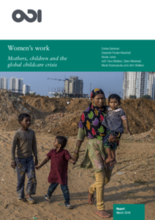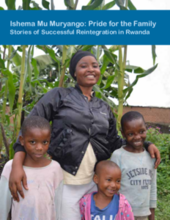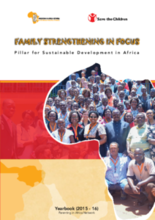Displaying 491 - 500 of 909
The purpose of this study was to determine the factors associated with the risk of negligence in child care during the first year of rearing in adolescent and adult mothers.
The Standards of Quality for Family Strengthening & Support are designed to help ensure that families are supported and strengthened through quality practice.
This animated video describes Indonesia's Families First Signature Program which began in 2005. The goal of Families First is to ensure that every child in Indonesia has a safe, family environment, recognizing that family-based care is best for child development. The video describes how the Signature Program has helped shift care away from institutions towards family-based care.
This report and summary explores the current childcare policy failures across a range of case-study countries, including Viet Nam, Gaza, Mexico, India and Ethiopia, and highlights examples of progress in countries which are successfully responding to these challenges.
This report highlights stories of some children, youth and families who have been assisted under the Ishema Mu Muryango program. While each of their stories is unique, all highlight some common themes about institutionalization and child abandonment in Rwanda.
In this video Child's i Foundation works with Care 4 Kids, an orphanage for 53 children, which wants to reintegrate children back into families but had challenges convincing the families that they could provide better care. Child's i Foundation organised an open day for families and invited parents who had taken their children back from Rafiki to explain the benefits of children growing up in families.
This study focused on a particular dimension of teenage motherhood in foster care: participants' efforts to break the cycle of child abuse and neglect with their own children.
The current study employed interpretative phenomenological analysis to explore 18 in-depth, qualitative interviews from six participants on the meaning and experience of motherhood among teenage mothers in the United States in foster care in the and in the years immediately after ageing out.
This report shares highlights and lessons learned from PAN's work on family strengthening during the year 2015.
The overall objective of this study was to deepen understanding on the experiences and support systems of grandparent-headed households with children of prisoners (CoP) in Uganda.



